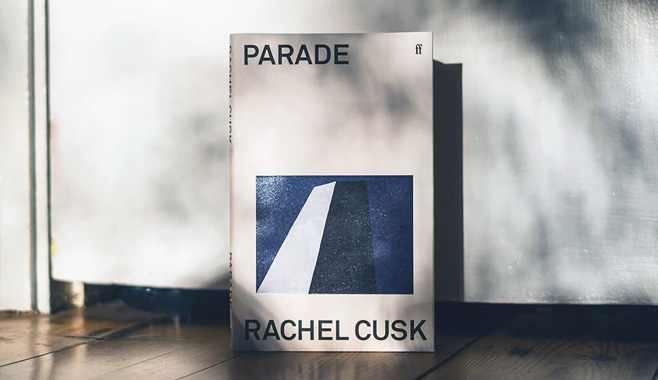Book
Parade
Rachel Cusk
3/5
Fragments in search of meaning
It is a curious book, Parade. Having read several novels by Rachel Cusk, some of which I thought were outstanding (Outline and Second Place in particular), I have been puzzled by this one. There are four sections, almost self-contained short stories permeated by connecting themes and motifs such as creativity, gender, violence, anxiety, need for love, effects of random violence and death.


The first two debate artists’ creativity in the example of a male artist G (‘The Stuntman’ section) and a completely different female artist G (‘The Midwife’ section). In fact many characters in this novel are called G, and I wonder if perhaps the novel should just have been called ‘G’. ‘G’ for ‘grief’ or ‘ghost’, or perhaps even ‘gift’ and ‘generosity’. ‘The Stuntman’ and ‘The Midwife’ are spiky uncomfortable narratives which expose the narcissism and insecurity of artists as well as their extreme vulnerability and sensitivity which go hand in hand. In a way they continue some of the themes from Cusk’s previous novel Second Place, but they feel like unborn rejects, nauseous dreams full of introspective discomfort.
I have found the second part of the book containing sections ‘The Diver’ and ‘The Spy’ more interesting and satisfying. ‘The Diver’ mainly concentrates on the aftermath of a traumatic event. During an opening of an exhibition of the artist called G at a museum, an unknown visitor throws himself over the railings. Afterwards museum staff including various guests, some of them art historians, gather at an Italian restaurant and have one of those mundane yet meaningful and revealing conversation that sometimes occur in real life after troubling events between people who don’t know each other well. The narrator’s personality (referred to as ‘we’) is absent from this story, repeating a pattern Cusk has used before of the silent and exceptionally passive observer. The conversation participants are all dominant personalities with strong, sometimes witty opinions. In fact the whole chapter has a feel of a French conversation over a meal, interesting debate touching on many topics.
The last section ‘The Spy’ explores a mother’s death through two interconnected narratives, one appearing to want to be perceived as autobiographic, told in the first person of plural ‘we’, and another about the filmmaker G, his family background and creative path. It is an interesting text about wanting to be seen by our parents and simultaneously hiding from them; about who contains whom and who gives meaning to whom. It is ultimately about the loss of a mother, which is explored in moving revealing thoughts and feelings which are not attributed to anyone in particular. We have been culturally conditioned to expect that death will bring things full circle, that it will release us, provide closure, that the dying person will comply and play their role, be dignified, be generous, that the grief will feel the way we expect it to, that it will be manageable, nameable, but this is never so and we can always only expect to be unprepared in the face of it.

The narrator says that people were often baffled or angered by G’s films: ‘They expected a storyteller to demonstrate his mastery and control by resolving confusion and ambiguity of reality, not deepening it.’ This is a reflection on Cusk’s novels as well, they are often non-linear and fragmentary in a way that portrays a search for meaning rather than a final statement or elucidation to be consumed by readers.
The stratagem of using two entwined narratives within each chapter doesn’t add much for me other than further narrative instability. This may well be intentional, but from the reader’s point of view it makes it difficult to keep track of characters or get emotionally involved. In fact it results in a certain indifference which in my view does not help the text get a foothold in reader’s mind.
G who is the ‘spy’ from the chapter’s title explains that concealing his identity as a creator has allowed him to observe unimpeded and with more clarity. Does this mean that the traditional role of the narrator, who is often hidden from view, allows after all for a greater freedom when writing fiction, unlike the opposite modern approach? And yet: ‘A novel was a voice and a voice had to belong to someone.’ Cusk explores these contradictory tensions in the role of the author and their relationship with their work and audience, trying to find a new authentic way to express them, and although she is a formidable writer, in Parade I feel her subject matter is running away from her. Or perhaps this is exactly what she wanted.